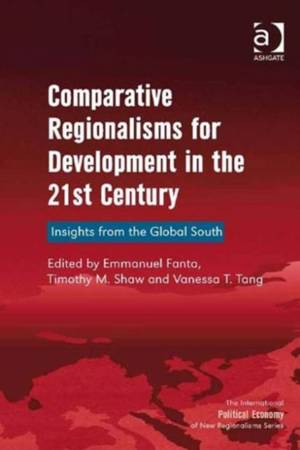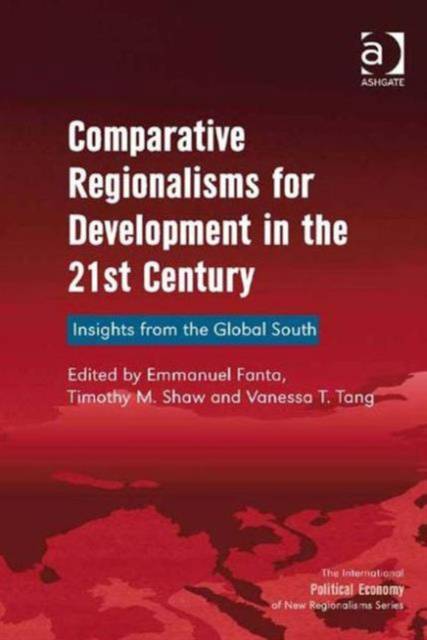
- Afhalen na 1 uur in een winkel met voorraad
- Gratis thuislevering in België vanaf € 30
- Ruim aanbod met 7 miljoen producten
- Afhalen na 1 uur in een winkel met voorraad
- Gratis thuislevering in België vanaf € 30
- Ruim aanbod met 7 miljoen producten
Zoeken
Comparative Regionalisms for Development in the 21st Century
Insights from the Global South
Timothy M Shaw
€ 195,95
+ 391 punten
Omschrijving
The global 'financial' crisis at the turn of the decade has accelerated changes in the relative standing of major regions. As both the US and Eurozone economies have confronted a series of setbacks and struggles to find their second breath, so Asia, Latin America and even Africa have picked up the slack and have been able to maintain high levels of growth. The resilience of the Global South questions whether we are witnessing an evolution towards a regional rebalancing or even global restructuring. This responding volume has four interrelated topics. It explores the transformation taking place in/with regard to the financing of development in the Global South and the apparition of new players in the field. The emergence of 'New Regionalisms' in the South and the usefulness of these experiences for comparative studies of regional relationship is explicated. It turns its attention to new forms of transnational governance that are emerging and the role that a novelty of actors play in this 'new multilateralism'. Finally, it looks into the implications of this trio of novel directions and players for analyses and policies.
Specificaties
Betrokkenen
- Auteur(s):
- Uitgeverij:
Inhoud
- Aantal bladzijden:
- 294
- Taal:
- Engels
- Reeks:
Eigenschappen
- Productcode (EAN):
- 9781409465201
- Verschijningsdatum:
- 18/09/2013
- Uitvoering:
- Hardcover
- Formaat:
- Genaaid
- Afmetingen:
- 156 mm x 233 mm
- Gewicht:
- 699 g

Alleen bij Standaard Boekhandel
+ 391 punten op je klantenkaart van Standaard Boekhandel
Beoordelingen
We publiceren alleen reviews die voldoen aan de voorwaarden voor reviews. Bekijk onze voorwaarden voor reviews.












